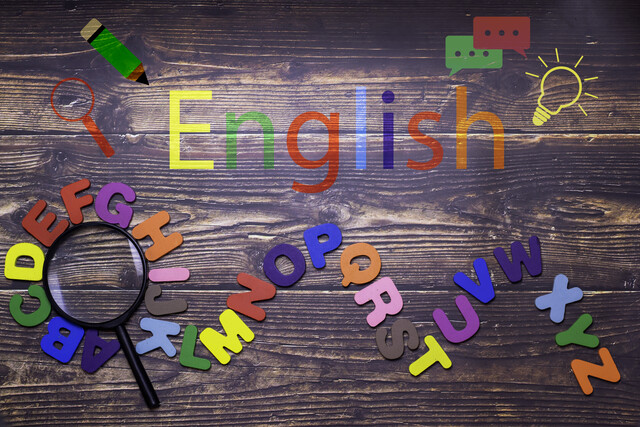Modal verbs can be a real doozy for English learners.
The challenges of teaching modals
When it comes to modals (can, could, may, might, must, will, would, shall and should/ought to) students have to learn that the modals:
-are always used with another verb, never by themselves, and yet that answers like "Yes we can" is not an example of a modal by itself; instead, the verb is implied: "Yes, we can (do it)"
-have multiple uses and meanings in different situations.
The various modals can be taught in separate classroom lessons, especially for lower-level students. Can is often taught by itself early on in a beginner course, for example.
But later on the modals should be combined together in one classroom lesson, in order to show that they can be and often are all mixed together in everyday conversations.
Will is almost always taught separately from the other modals because it is a future tense, so we won't explore will in this lesson. Shall can be taught at the same time as will when teaching British English.
Several modals can be taught together in one classroom lesson. Below we will review activities for teaching each modal one at a time. But first, let's discuss teaching some pronunciation.
Pronunciation
We covered the issue of "can" versus "can't" in Lesson 16.
Some students try to pronounce the "L" sound in would, could, should. Besides basic modeling and repletion, you can use the rhyming techniques we discussed in the Lesson 16. Rhyme would, could, should with "good". Likewise for might rhyming with "light," "(web)site" or "white."
An Overview of Modals with Examples and Classroom Activities
Modal verbs have some things in common: They 'help' another verb. They are formed using the infinitive form of the verb without "to"
to go
I might go.
to work
She might work.
When using modals in asking questions, "do' and "does" are not used:
Can I use your phone?
Could you help me?
The verb form never changes. This can be stressed to students as a positive aspect of modals. At least they never change and that makes them easier to learn in that way:
I can work
You must work
She might work
It should work
We could work
They would work
Specific Modals
We will go over some specific modals and examine usage, examples and ideas for classroom exercises.
-Can
Used for ability, possibility, offers and asking for help.
Examples for ability:
I can swim.
Can you play the piano?
I can speak English. I can't speak Chinese.
I can play football but I can't play basketball.
Possibility:
Talking to parents can be difficult.
Winters can be very cold in New York.
Offers and asking for help:
Can I help you with this bag?
Can you help me with my homework?
Classroom activities:
-Superheroes: Have students make lists:
What can Spiderman do? What can Wonder Woman do? What can Superman do that Spiderman can't do?
-Animals: Make a list of animals (birds, horses, tigers, rabbits) and have the students write or say what each can and two things each cannot do.
You can expand on this by following up with eagles, penguins and ostriches. For example: Penguins can swim but they can't fly. Eagles can fly but they can't swim. Ostriches can't fly but they can run and kick.
-Show me: Make list like the following and put each one on a separate index card
Can you touch your nose with your tongue?
Can you name five jobs?
Can you count backwards from 10?
Can you sing a song?
Can you draw a horse?
Can you name three presidents of the USA?
Hand out the cards at random and have the students answer with a full sentence. If they say yes, ask them "Can you show us?"
-One more teaching activity: President Barack Obama's campaign slogan was "Yes We Can."
There is a short excerpt on Youtube from an Obama rally that shows "can" being used in a speech. It also features the modal ought to, a couple phrasal verbs and some idiomatic expressions.
You can find the video by searching on "Obama: Now's the time to say yes we can" and
"Jamestown North Carolina"
Vocabulary: a space race, a depression, to give up, to give in, to confront.
Expressions: to roll up your sleeves, to sit by and do nothing, tough times
https://www.youtube.com/watch?v=QPQ2vZ-JvfU
Text:
When a depression hit we didn't say, "No, we can't."
When World War II came, we didn't say, "No, we can't."
Our grandparents and great-grandparents, they didn't say, "(There's) nothing we can do about this. Let's just spend all our time arguing in Washington."
They didn't say, "It's too hard." They didn't say, "We give up."
They said, "Let's roll up our sleeves; let's fight back." And American won. (Applause.)
When the space race started, Kennedy didn't say, "We can't go to the moon; that's too far."
He said, "Come on, America. Let's go." America won. We can win the space race."
When we confront tough times, we don't give in to what is; we think about what ought to be.
There are too many Americans who are hurting right now for us to just sit by and do nothing.
Now is the time to act. Now is the time to say, "Yes, we can."
-Should / Ought To
Many students will say they have never even seen "ought to" before. The good news is that it means the same as "should" and is used interchangeably.
I teach it by saying it's occasionally thrown in along with "should" and is almost never used in the negative or with questions. I don't even teach the negative or question forms unless it's an advanced class.
Used for necessity, advice, obligation, suggestions.
Usage is the key to teaching and understanding "should" and "ought to" by first drilling with these kinds of sentences and using them in exercises:
You have bad grades in school. You should study more.
The movie is getting bad reviews. We shouldn't go. We ought to go to a different movie.
Are you hungry? Should we eat now, or wait until later?
It's late! We should go home.
You shouldn't drive so fast. It's dangerous. You ought slow down.
I can't decide. What should I do?
Classroom activities:
Note: All of the activities below can include "ought to" in the answer forms.
-Lead the class on an activity on suggestions where the students have to come up with their own answers.
This activity can focus on places to go in the city:
I want to meet new people, where should I go?
I want to go to a good movie theater. Where should I go?
I want to see something special in town. Where should I go?
You can expand this activity by asking about student's favorite places:
What's your favorite restaurant? What should I have there?
What should I order for lunch?
What should I order for dinner?
What should I order for dessert?
What kind of drink should I have there?
What's your favorite place to visit? What should I do there?
What should I see there?
Another activity can focus on advice:
I have a job offer. It's a lot of money, but it's in Alaska. Should I take it?
My friend doesn't know that her boyfriend has another girlfriend. Should I tell her?
I think my friend drinks too much. What should I do?
Activities can focus on workplaces:
What should you always do at work?
You shouldn't be late. You should be on time.
What should you do at work?
You should try to help other workers.
Or travel:
What should you bring when you go hiking?
What should you bring on a trip to a foreign country?
-Might
Used for possibility, permission.
Might is one modal that students often ask about, but it can be explained simply as meaning will maybe:
We will maybe go to the movies this weekend.
We might go to the movies this weekend.
Note: Might is used in British English for requests and permission, but rarely in American English:
Might I go with you to the movies?
Might I have another piece of pie?
Like may for permission, if you're teaching in the USA this usage should be mentioned but not focused on, since it's just not used in America.
Classroom activities:
-The weekend: Give the student a list of actions like go to a movie, go to the beach, stay at home, etc. Then have the encourage by modeling for students to have conversations in pairs like this:
What are you doing this weekend?
I might go to a movie.
What will you do if you don't go to a movie?
I might go to the beach or stay at home.
-Dangers and attractions: Make a list of dangers and attractions associated with places or activities.
The list might include be dangerous, be big waves, be crowded, be too hot, be too cold, be fun, be exciting, be too expensive, be boring, be too far away, be too much traffic, be too small, have many things to do, have nothing to do etc., with the list on one side of the page, and the list of places on the other side like London, the beach, a club, a disco, a bar, New York, Los Angeles etc.
Model the activity to have students ask and answer like this:
Are you interested in going to the beach?
It might be too cold. There might be big waves and it might be dangerous.
What about driving to Los Angeles?
There might be too much traffic. I might have nothing to do.
-Must
Used for necessity, obligation.
Examples:
I must go to the supermarket this evening. -Obligation
You must see a doctor right away. -Necessity
You must see this movie, it's great! -Necessity
Classroom Activities:
-It's the law: Students make a list of things that people must do, according to the law:
People must pay taxes.
We must not smoke in restaurants.
We must use seatbelts in the car.
We must not drink and drive.
-No Choice: Students make a list of things they must do in life in general or their personal life:
I must go shopping or I won't have food at home.
Everybody must eat and drink to live.
I must go to the bank this week.
-Makes Sense: Provide a list of situations that the students must describe using "must be." For example:
The computer won't turn on. It must be broken.
The streets are wet. It must be rainy.
The bus is not here yet. It must be late.
She is always talking about him. It must be love. (See song activity below.)
-Would
Used for requests, preferences, possibilities.
Would you give me the keys?
I would like the red one.
My dream job would be.
Classroom activities:
-"Would" is often part of the second conditional classroom lesson, which we covered in Lesson 10. Activities involve questions and answers like:
What you would do if you had more time?
What you would do if you won the lottery
-My perfect life, my dream job. Have the students practice based on questions and answers like the following:
What would your dream job be?
I would love to be a famous actor.
What would your perfect life be like?
I would travel the world. I would meet famous people. I would live in a big house.
-Preferences and choice: Have students discuss multiple scenarios. For example:
What would you rather do, live by the sea or live in the forest?
I would rather live in the forest. The beaches are too crowded.
I would rather live by the sea and go to the beach every day.
What would you rather be, rich or famous?
Would you want to be president? And if so, what would you do?
-Offers and requests: Use menus and have students take turns being waiter and customer:
Would you like to order something else?
Yes, I would like the chocolate dessert. Would you bring me the bill?
-Could
Used for permission, advice, possibilities.
Could I have another?
You could do that in a better way.
It could rain tomorrow.
Classroom Activities:
-Your hometown: Have the students tell each other about all the interesting things they could do in their hometowns.
You could visit the Natural History Museum. It's great.
You could go to my favorite restaurant. It's on Main Street.
-Planning a visit: Similar to the above, but use travel brochures or list of sights and activities in various cities or countries:
You could visit the Eiffel Tower.
You could go to the oldest pub in Europe.
-Asking for help: Set up various scenarios and have the students ask each other for assistance.
Lost when travelling: Could you tell me where.?
Car trouble: Could you give me a ride? Could you fix my car?
Shopping: Could you help me carry.? Could you buy some.?
Advice: Similar to above, but asking for options. Set up scenarios with many possible option. How to save money, how to get a job, how to talk to a friend about a problem.
Could you tell me the best way to get a job?
You could ask friends. That's a good way. You could check job websites.
I don't know how to save money. Could you help me?
To save money, you could destroy all your credit cards and use cash. You could.
Superpower: Students can make up or be presented a list of superpowers and what they could do with the superpower.
What could you do, if you could.
fly? I could fly to the moon. I could fly to work.
be invisible? I could go inside the White House and see what's happening.
heal people: I could make sick people feel better. I could work in a hospital.
-May
Used for requests, offers, suggestions, permission, possibility.
When teaching "may," keep in mind that it is used in British English much more than in American English. Americans tend to ignore it and use "can" for permission when the British say "may."
A common example:
(UK) May I use your computer?
(US) Can I use your computer?
A teenager asking permission from a parent:
(UK) May I go with my friend to a concert?
(US) Can I go with my friend to a concert
If you are teaching in the US, don't focus too much on "may" because it's not too common. But it should always be mentioned and taught, especially for students who work in international business.
You can use "maybe," a word many beginners pick up on their own because it is so common, to help them understand "may."
Classroom activities:
The activities for "might" above can be used for "may" in terms of possibilities; the activities above for "can" can be used for permission.
Note: "May" is also used in such constructions as "May have done," along with the modals covered below: should, could, would, might, must and even will. Can is used this way in the negative: "Can't have done." This aspect is usually saved for a separate class after the present perfect is introduced, or in an advanced class that focuses on all the possible uses of a single modal or a specific grammar usage.






















